Strengthening Knowledge to Practice on Effective Salt Reduction Interventions in Low- and Middle-Income Countries

Published in Current Nutrition Reports, on the 5th of July, Santos et al conducted a review on the implementation and evaluation of salt reduction interventions in Low-and middle-income countries (LMICs). The review included articles related to salt reduction interventions between 2013 and 2020. Overall, the review included 32 studies, from 137 LMICs, finding that most interventions focused on education, food reformulation and […]
Effectiveness of the Victorian Salt Reduction Partnership’s media advocacy activities

Published in the Nutrition Journal on 16 September 2020, Rosewarne et al evaluated the Victorian Salt Reduction Partnership’s media advocacy activities by determining the extent to which activities contributed to the overall strategy aims and the effectiveness of the activities in gaining media and industry engagement. Guided by Stead et al’s framework for evaluating media […]
Mongolia: Raising salt awareness in the western region of Mongolia
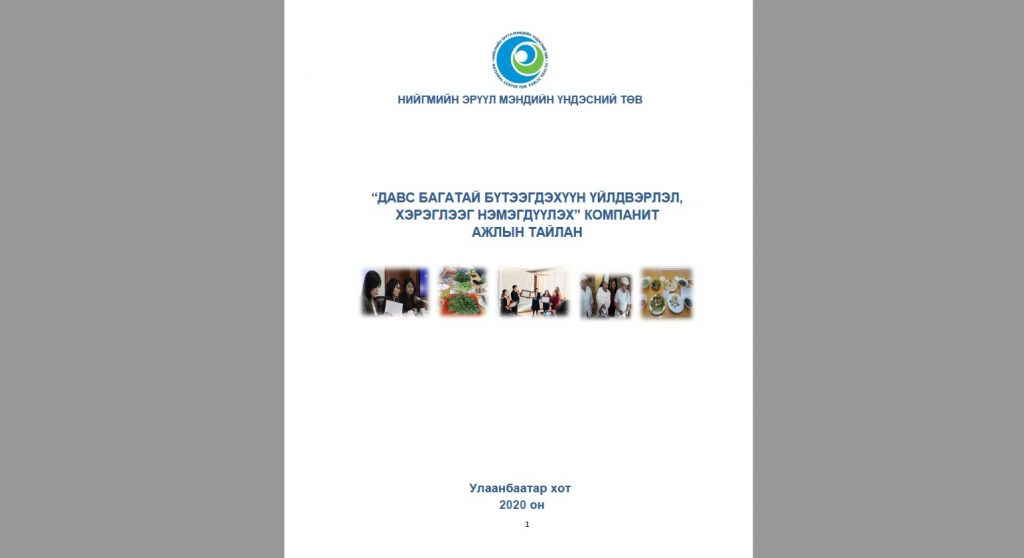
Mean estimated population salt consumption in the western region of Mongolia is 15.4 g/day; triple the World Health Organization’s (WHO) recommended daily maximum of 5 g/day and much higher than the national average of 11.1 g/day. To tackle this disparity, Mongolia has implemented several activities in line with the framework, “Improving knowledge and awareness on […]
LINKS toolkit: Resources for Healthy Public Food Procurement
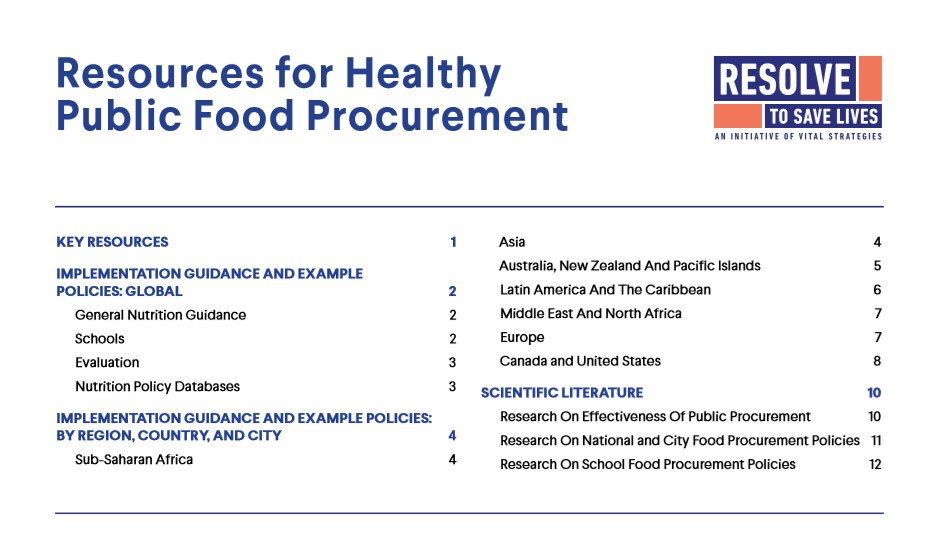
LINKS (a collaboration between WHO, the CDC Foundation and Resolve to Save Lives) recently published a toolkit of resources for healthy public food procurement policies – these policies ensure that foods procured or served in public settings contribute to a healthy diet. Resources include implementation guidance and examples of policies from around the world, and […]
How effective is the Eat Mediterranean Program in Portuguese schools?

Published in Nutrients, Rito et al evaluated the Eat Mediterranean program (EM) that aimed to eliminate dietary inequalities in school children. The EM program was implemented over two school years in 25 Portuguese schools within two municipalities. A pre-intervention evaluation of school menus was conducted, analysing 39 school meal samples collected from 10 kitchens that […]
Scaling-up and evaluating salt reduction policies and programs in Latin American countries
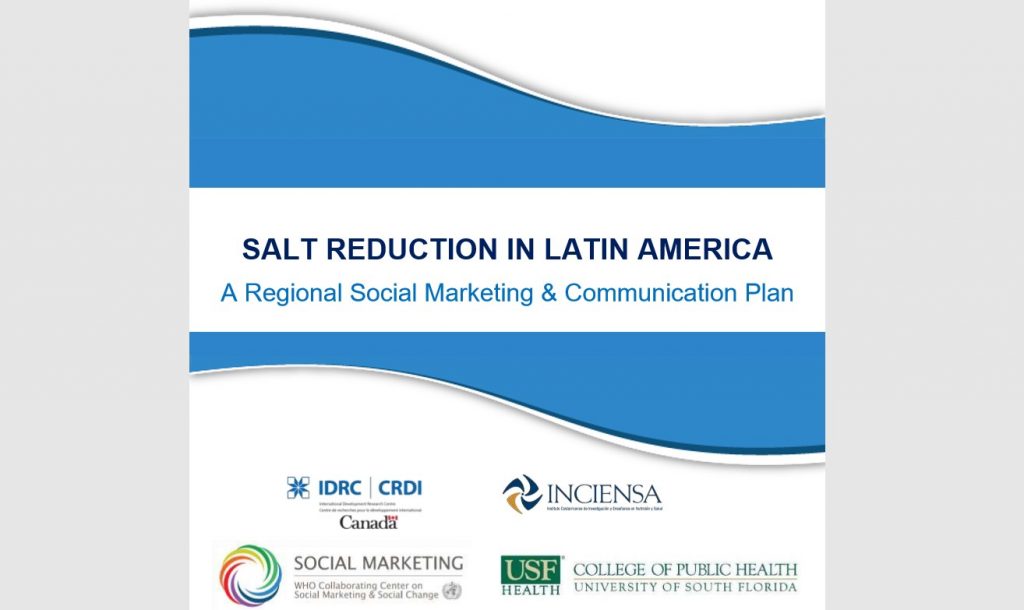
In May 2020, the final technical reports of the International Development Research Centre (IDRC) project, “Scaling-up and evaluating policies and programs in salt reduction in LA countries,” were published. The reports and most outputs can be found in the IDRC Digital Library. Some key report include: Regional policy Brief, “The Challenge of Reducing Dietary Salt […]
Progress on Sodium Reduction in South Korea
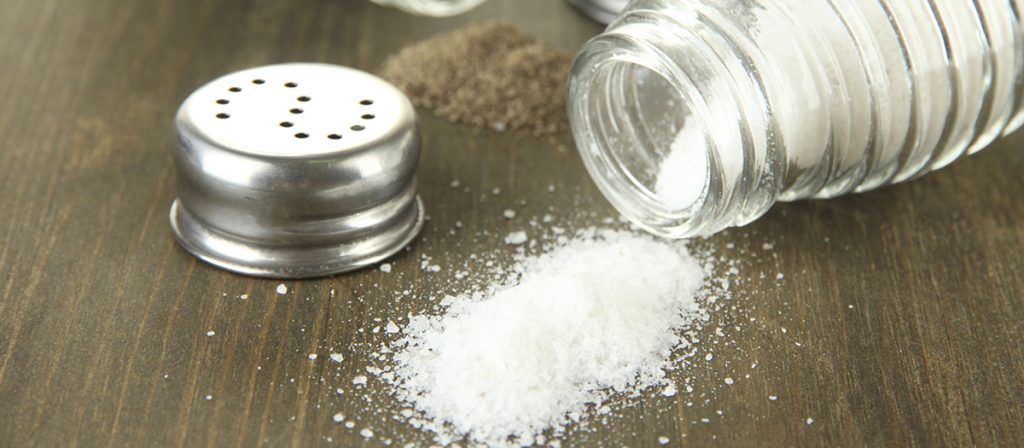
A study recently published by Hye-Kyung Park et al has reviewed sodium reduction progress in South Korea. A National Plan to Reduce Sodium Intake was implemented in South Korea in 2012, this plan has the aim of reducing population sodium intake by 20% by 2020 (3,900 mg/d) by a range of intervention activities including; consumer […]
Formative Research to inform a behaviour change Salt Reduction Intervention in India (SRII) Project

The SRII project is a community-based salt reduction behaviour change intervention in India, funded by Resolve To Save Lives. Dr Claire Johnson and Dr Annet Hoek recently travelled to India to support colleagues at The George Institute offices in Hyderabad to undertake formative research activities in Siddipet, Telanagana: a small rural town approximately 2.5 hours’ […]
Effects of Sodium Reduction on Energy, Metabolism, Weight, Thirst, and Urine Volume
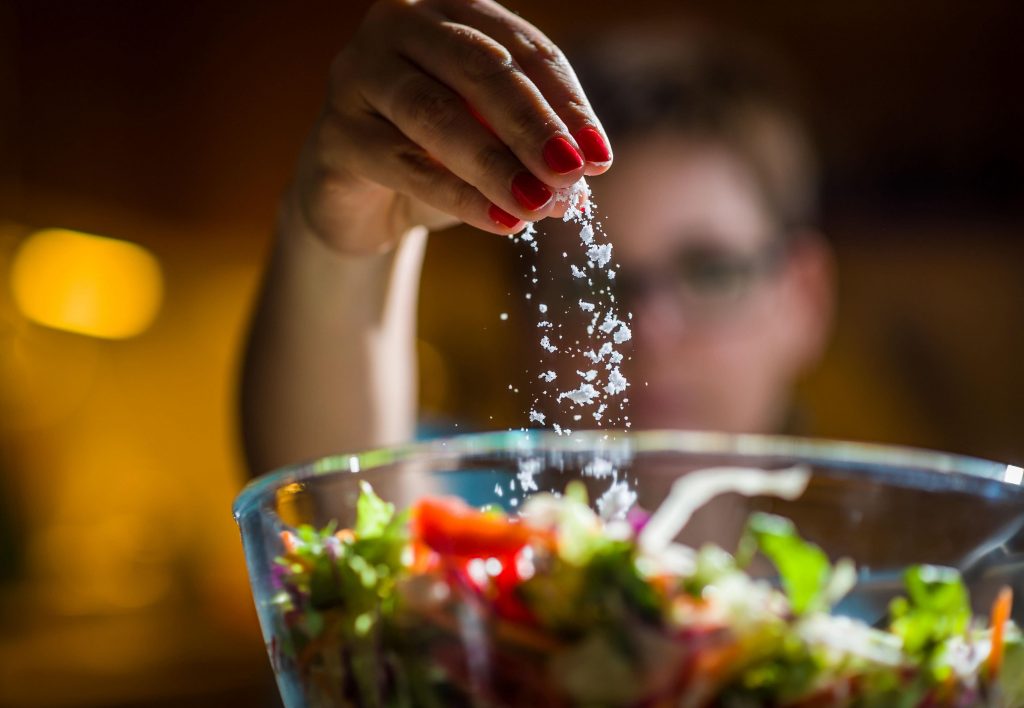
A study by Juraschek, et al published in Hypertension conducted a trial using the DASH (dietary approaches to stop hypertension) to assess whether a reduced sodium diet has any adverse effects such as causing weight gain. To read more, click here.
Salt-Related Knowledge, Attitudes, and Behaviours on Efate Island, Vanuatu
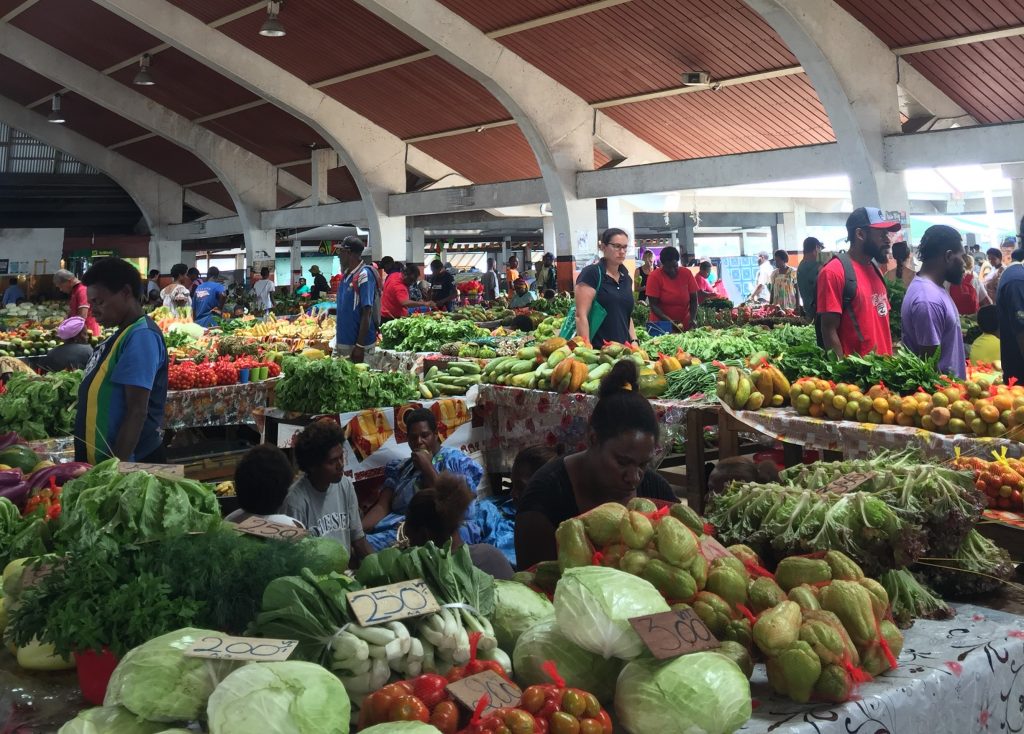
Sparks E et al published an article in the International Journal of Environmental Research and Public Health on salt-related knowledge, attitudes and behaviours in a sub-national sample in Vanuatu. They found that salt-related knowledge was high, with over 80% agreeing that too much salt could cause health problems, and that it was ‘very important’ to lower […]